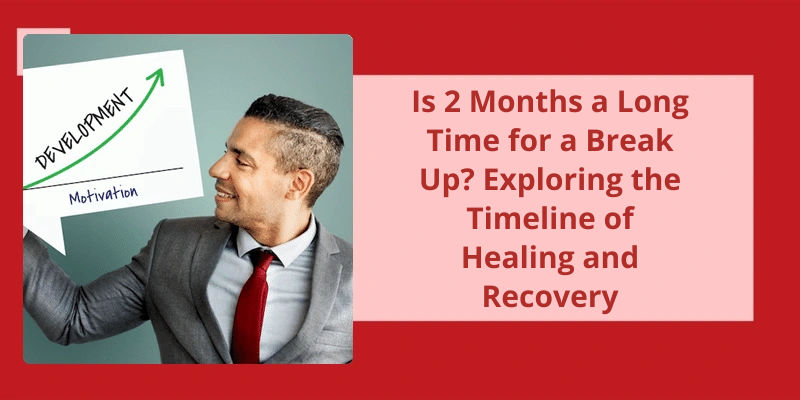In every field, experience is the pillar upon which expertise is built. From medicine to sports, entertainment to journalism, the knowledge and know-how that come from years of practice and repetition can’t be understated. Those who’ve honed their skills and refined their abilities over time are deserving of recognition and titles that reflect their wealth of knowledge. They may be referred to as skilled, expert, practiced, veteran, accomplished, versed, adept, or qualified, but ultimately, they’re all individuals who’ve dedicated their lives to the pursuit of mastery. Through their dedication and tireless effort, they’ve become the embodiment of their craft, and a source of inspiration for the rest of us who strive to follow in their footsteps.
What Does It Mean to Be a Very Experienced Person?
Being a very experienced person means that you’ve acquired a wealth of knowledge, information, and skills through years of practice and exposure to various situations. You’ve honed your skills and developed expertise in your chosen field, enabling you to perform your tasks with ease and confidence. You’ve amassed a collection of valuable insights that you can apply to your work, helping you to overcome challenges, solve problems, and achieve your goals more efficiently.
You aren’t resistant to change, and you welcome new ideas, methods, and technologies that can enhance your performance. You’ve a growth mindset, and you constantly strive to improve your craft, expand your knowledge, and develop new skills. You’re always seeking new challenges and opportunities to push yourself beyond your limits, knowing that this is the path to personal and professional growth.
You’ve a track record of success, and your peers, colleagues, and clients recognize your expertise and reliability. You’ve built a solid reputation for yourself, which has opened up new doors of opportunity for you. Perhaps you’ve started your own business or consulting practice, where you can apply your expertise to help others achieve their goals.
It’s a quality that sets you apart from others and can lead to many opportunities and rewards. However, it also comes with a responsibility to share your knowledge and skills with others, to mentor and inspire the next generation of experts, and to use your expertise for the greater good.
When it comes to describing someone with a lot of experience, there are many words that come to mind. “Wise” and “skillful” are two of the most common adjectives used to describe such individuals. Experience is often seen as the key to becoming an expert in a particular field, and those who’ve accumulated a lot of it are often highly respected and sought-after for their knowledge and expertise. In this article, we’ll explore some of the different ways in which experience can help shape and define an individual’s professional and personal life.
How Do You Describe Someone With a Lot of Experience?
When describing someone with a lot of experience, one might say that they’re wise or skillful in a particular field through their years of experience. The word “experienced” itself implies that the person has been through various situations and has acquired knowledge and skills that only come with time spent in their particular area of expertise. They’ve likely faced and overcome a variety of challenges that have contributed to their level of knowledge and expertise.
An experienced individual has likely also developed the ability to think critically and logically about their field of expertise, allowing them to make well-informed decisions based on their experience. They’ve an intuitive understanding of the needs and requirements of their field and can provide practical solutions to problems that may arise. In addition, experienced professionals often possess a sense of creativity and innovation, allowing them to think outside the box and develop solutions that are unique and effective.
Furthermore, an experienced individual is often sought after as a mentor or advisor, due to their wealth of knowledge and experience. They can provide guidance and support to those who’re just starting out in the field and can help to shape the next generation of professionals. They may also be respected leaders within their profession, able to inspire and motivate others with their example of hard work and dedication.
It’s important to note that an experienced individual isn’t necessarily someone who’s been in their field for a long time. Rather, it’s someone who’s made the most of their time, constantly learning, growing, and improving their skills. They may have a passion for their field that drives them to continue learning and refining their abilities. Overall, someone with a lot of experience is a valuable asset to any team, offering a unique perspective and level of expertise that can only come from time and dedication.
How to Measure Someone’s Level of Experience in a Particular Field
- Evaluate their level of knowledge and skills in the field
- Assess their track record and previous experiences in the relevant area
- Ask them to provide examples of their work and accomplishments
- Conduct tests and practical exercises to gauge their proficiency
- Seek references from other professionals in the same field
- Consider their level of education and qualifications
- Observe their behavior and attitude towards their work
- Check their online presence and reputation in the field
- Offer them opportunities to demonstrate their expertise and knowledge
- Provide them with feedback and constructive criticism
Source: How do you describe someone with a lot of experience?..
When it comes to describing a person’s extensive experience, there are a few different phrases and terms that could be used. Rather than simply listing them off, it’s worth taking a moment to consider what these terms actually mean and how they might be used in context. From well-established careers and professions to long-standing vocations, there are plenty of ways to communicate a person’s wealth of knowledge and expertise.
What’s Another Way to Say Extensive Experience?
As you build your career, you may want to tout your extensive experience on your resume or LinkedIn profile. But after a while, seeing that phrase over and over can become redundant. Fortunately, there are plenty of synonyms and phrases to consider. For example, instead of saying you’ve extensive experience, you might say youve establish a successful career that spans numerous years or decades. In other words, you’ve a well-established vocation.
Another option is to convey the depth of your experience by saying you’ve a long-standing career. This phrase suggests that youve been working in your field for a significant amount of time, and likely have a wealth of knowledge and skills to show for it. You could also use the terms well-established profession or well-established occupation to describe the scope of your experience. These phrases all communicate that youre an expert in your field and have put in the hours and effort to achieve success.
When searching for another way to say extensive experience, it’s important to choose words that accurately reflect your specific experience and expertise. For instance, if youve held numerous positions within the same company, you might choose to describe your career as long-lasting and versatile. This suggests that you’ve a wide range of skills and experiences — and that your career has been anything but stagnant.
Emphasizing One’s Continual Professional Growth and Development Over the Course of Their Career, Such as “Continuously Expanding Expertise” or “Evolving Skill Set”
Focusing on constantly improving and learning new skills throughout one’s career, like building expertise and expanding abilities.
Choosing the right words to describe your level of experience can make a big difference in how you’re perceived by others. While there are many ways to convey your familiarity with a subject or skill, some words are more effective than others. In this article, we’ll explore some of the best ways to say you’ve a lot of experience.
How Do You Say You Have a Lot of Experience With Something?
Asserting that you possess ample expertise in a particular area can be a powerful way to convey your qualifications and build trust with potential clients or employers. One way to communicate this is through your resume or CV, highlighting the breadth and depth of your experience. This might include providing concrete examples of projects youve worked on, results youve achieved, and accolades or recognition youve received.
Another way to demonstrate your extensive experience is through your communication style and demeanor. If you appear confident and knowledgeable in your interactions with others, this can signal that you’re someone who’s spent a considerable amount of time honing your skills in a particular field.
Of course, it’s important to strike the right balance between expressing your expertise and sounding boastful or arrogant. One way to do this is to use language that’s factual and objective. Rather than saying that youre an “expert” or a “guru” in a particular area, opt for more neutral language like “experienced” or “knowledgeable.”
Additionally, providing specific examples of your work and skills can help to back up your claims of expertise. This might include citing research or anecdotal evidence, or even sharing case studies or testimonials from satisfied clients or colleagues.
Ultimately, the key to communicating your abundant expertise is to be honest and accurate in your assessments of your own skills and abilities. While it’s important to present yourself in the best possible light, it’s equally crucial to avoid misrepresenting your experience or overstating your qualifications. By striking this balance, you can build a strong reputation as someone who’s knowledgeable, credible, and trustworthy in your field.
The Role of Certifications and Credentials in Demonstrating Expertise
- Certifications and credentials are important in demonstrating expertise
- They show a level of knowledge and skill in a specific area
- Certifications and credentials can increase job prospects and earning potential
- Employers may require specific certifications or credentials for certain positions
- Continuing education and maintaining certifications and credentials can also be beneficial in staying up-to-date in a field
Experience is a valuable asset that transcends across various fields and industries. It denotes proficiency, expertise, and mastery, qualities that are highly sought after in today’s competitive job market. While there are many synonyms for experienced, it ultimately boils down to someone who possesses a high degree of skill and expertise in their respective field. In the following paragraphs, we’ll explore how to recognize experienced individuals, their key attributes, and how to highlight your own experience on your resume or during an interview.
How Do You Say Someone Is Experienced?
When it comes to describing someone as experienced, there are a variety of terms that can be used. Typically, these terms emphasize the individuals abilities, qualifications and achievements in their field. Some of the most commonly used synonyms for experienced include skilled, adept, proficient, skillful, expert, practiced, good, and accomplished.
A skilled individual is someone who’s developed an advanced level of proficiency in a particular task or activity. This is often achieved through extensive training and practice, allowing them to perform their work with exceptional precision and efficiency. Adept individuals are similarly highly skilled, and are often praised for their ability to handle complex or difficult tasks with ease.
Proficient individuals have a solid understanding of their field of work, and have gained a level of mastery over their craft. They’re often recognized for their ability to produce high quality work on a consistent basis, and for their ability to adapt to changing circumstances quickly and easily.
Skillful individuals are known for their finesse and expertise in their craft. They possess a deep understanding of their field of work, and are often sought after for their ability to perform complex or challenging tasks with great precision and accuracy.
Experts are individuals who’ve achieved a high level of knowledge and skill in a particular field, and who’re widely recognized for their expertise and authority in that field. They’re often sought after for their insights and advice, and may be called upon to contribute to research, write articles, or speak at conferences.
Practiced individuals have spent a significant amount of time honing their skills and abilities, and are often considered to be highly experienced.
Finally, accomplished individuals have achieved a high level of success in their field of work, often through a combination of talent, hard work, and dedication. They’ve a proven track record of producing exceptional results, and are known for their ability to lead, inspire, and achieve great things.
Conclusion
In conclusion, there are many different words that can be used to describe a person with a lot of experience. Whether it be as a skilled expert, a practiced veteran, an accomplished individual, or a qualified professional, the value of their knowledge and expertise can’t be disputed. These individuals have honed their craft over years of hard work and dedication, and they deserve the utmost respect and admiration for their achievements. So whether you’re looking for a mentor, a teacher, or simply a source of inspiration, look no further than those who’ve dedicated their lives to becoming true experts in their field.






